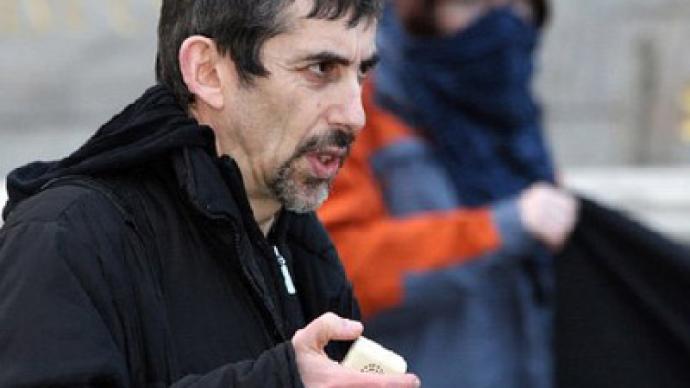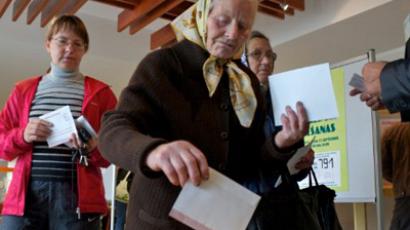Latvia moves to outlaw pro-Russian socialist party

Latvian security police have demanded that the country’s chief notary annul the registration of a political party that sought a national referendum on recognizing Russian as an official language.
Security officials claim they possess proof that the party was created in violation of the law. In particular, the authorities question the legality of the party’s founding convention. According to Latvian law, it takes at least 200 members at the founding convention to get the party registered. Organizers of the January 13 Movement claim they had 213 people present. However, security services claim they questioned participants of the event and established that the convention had gathered only slightly more than 100 people. The police addressed Latvia’s chief notary demanding to annul the party’s registration, but the notary said that he cannot make such decisions on his own and sent the police to the prosecutors’ office. The January 13 Movement was registered in 2009 as a socialist party named after the events of 1905, when police violently dissolved a workers’ rally in the Latvian capital Riga. The incident led to broader riots that became part of the so called 1905 Revolution – a wave of workers’ protests that were suppressed by the Tsarist regime, but helped the country’s eventual democratization. One of the party founders is a well-known Russian radical, Vladimir Linderman, also known as Abel – a member of the unregistered and outlawed National Bolshevik party who was suspected of conspiracy to assassinate the Latvian president and fled to Russia in 2002. Linderman appealed to Russian authorities for political asylum, but was not satisfied by the condition that he should stop all political activity, choosing to stay illegally on Russian territory. He was detained in 2006, but fled as Russian police launched his extradition to Latvia and remained in hiding for two more years. In 2008, the activist was detained again and this time Russia succeeded in delivering him to Latvia, where he stood before trial. Eventually the charges of conspiracy to murder were dropped and Linderman received only a suspended sentence for illegal possession of explosives. In 2012, the January 13 Movement was renamed into the “For the Mother Tongue!” and Linderman, together with other pro-Russian politicians, initiated a nationwide referendum seeking official status for the Russian language. The referendum took place in early 2012 and failed to get enough support for the idea. Linderman, however, claimed that the real objective was to consolidate the Russian-speaking minority and this objective was successfully achieved. Russian officials have repeatedly blasted Latvia for the treatment of Russian speakers. Recently Russian Foreign Minister Sergey Lavrov reiterated the position by saying that the non-citizens issue was the biggest problem in Russia’s relations with European countries and called it “the disgrace of the European Union and disgrace of NATO”.Russia called on Latvia and neighboring Estonia to scrap the laws allowing for the non-citizen status and added that these nations had ignored the recommendations of the UN, OSCE and CE even though the international blocs always acted as their allies.













